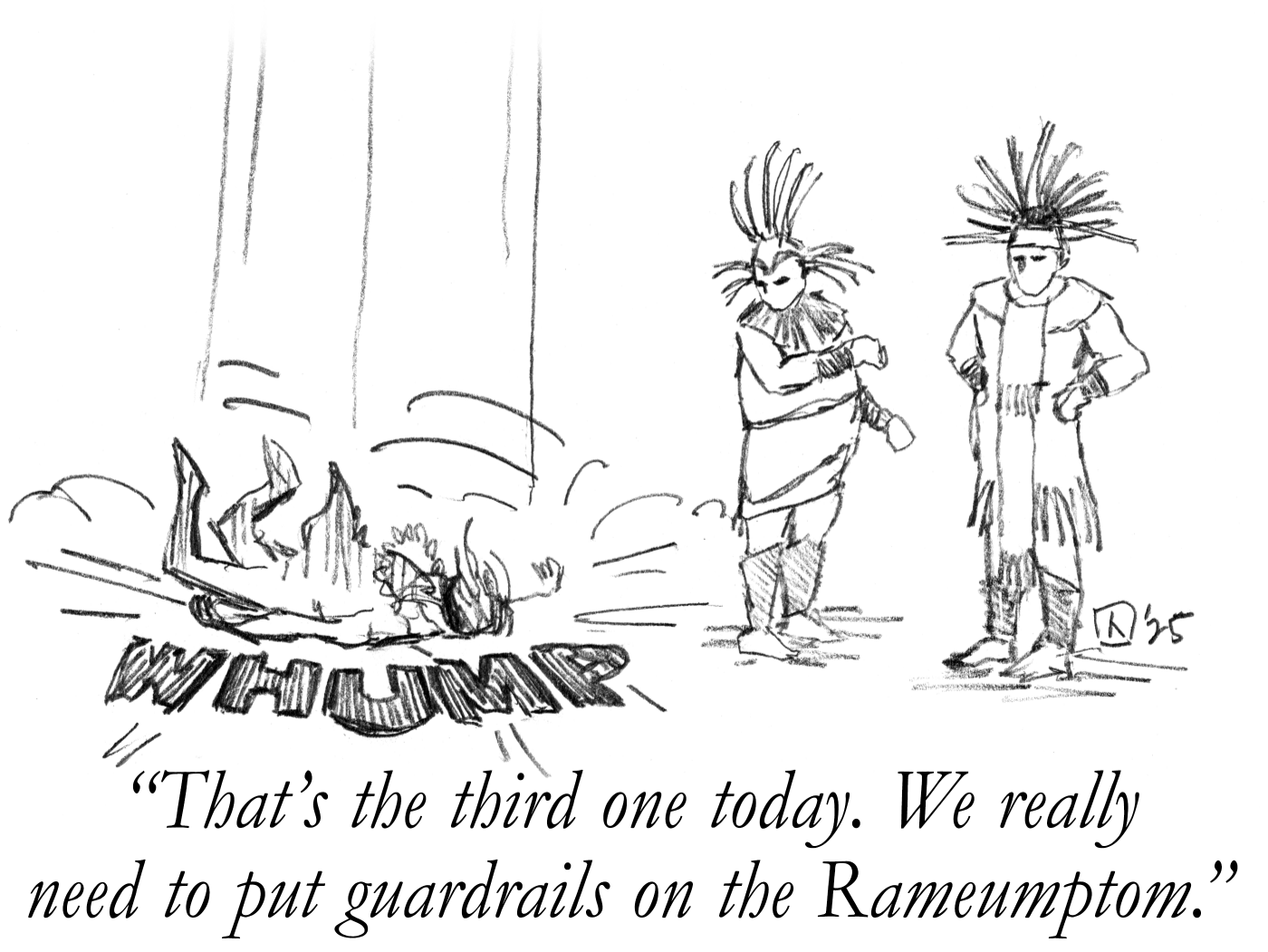For obvious and important reasons, membership councils in the Church of Jesus Christ have always been private matters. Given the sensitive and personal nature of the discussions, leaders do not comment publicly on membership councils in order to protect those involved in often painful circumstances. When high-profile members become subject to Church discipline, some feel invited to publicly defend that member or agitate against the Church in order to influence its decisions.
That happened again last week in the case of Natasha Helfer’s recent membership council—as she enlisted professional colleagues to write a letter of support. Their letter was subsequently made public and led to national coverage in a well-balanced Washington Post piece by excellent journalist Sarah Pulliam Bailey.
Since Church leaders do not comment on their deliberations, most of the people commenting on this issue are aware of only one side of the matter and they take for granted that Church discipline is punitive and aimed toward cracking down on dissent. We hope to present a better way of understanding the Church’s motivations for those who are just “listening in” on social media.
Our larger purpose here is to highlight the purposes of Church discipline and defend the Church’s prerogative to discipline members who endanger the spiritual wellbeing of its congregants. We would not be commenting at all if it were not already national news, but our comments here must be taken generally, with the only things specific to Sister Helfer being those facts already made public. We neither know her well nor are we in any position to judge her membership.
Some kind of similar need for boundary maintenance, of course, has been advocated in many religious communities for thousands of years from Protestant “disfellowshipping,” to Jewish “herem.” But given the growing emphasis on tolerance, inclusion, and diversity, Americans are naturally suspicious of deliberations that could end in a member’s excommunication—even more so, when they are directed at a woman in the professional class. These details have generated a variety of emotional appeals on social media, denouncing the Church’s actions as “spiritual violence” and “religious violence,” and insisting that any such action represents a failure of charity, courage, and inclusion (see, for instance, an impassioned appeal by Jennifer Finlayson-Fife on social media shared hundreds of times).
Thanks to commentary like this, most public discussion this week has taken for granted an overly punitive, and tone-deaf image of the Church and its disciplinary approach, with remarkably little questioning of its underlying proposition: Are membership councils, always and everywhere, “spiritual violence”?
The intent of membership councils. Not according to the reality experienced by tens of thousands of people who have been through their own membership councils (previously called “disciplinary councils”). These councils are grounded in fidelity to the Church and its teachings, including love, compassion, and justice. And for many, that’s precisely what they are.
In so many cases, people report experiencing their deliberations with priesthood leaders about transgressions as a loving, healing experience. There is exquisite sensitivity and personal care brought to the decisions. As attested by one ward clerk who witnessed several councils while taking notes:
Bishoprics, stake presidencies, and high councils seek direction from God through the Holy Ghost regarding what action should be taken. They literally kneel in prayer and ask the Lord to guide them and then seek spiritual confirmation of their decision before finalizing. I have watched as bishoprics have softened their stance after praying and asking if the action they are proposing is right. And I have watched as the person whose standing is in question also feels the Holy Spirit confirm to them that the action is right. And the disciplinary action did help them repent and return in time to full fellowship.
One of us (Jeff) participated in several disciplinary councils at the ward level while a member of two Bishoprics and his experience was the same as this clerk’s.
So, no—this is not an Amish-style shunning. Even excommunicated members are welcome to attend open meetings and contribute in limited ways. In fact, most members are not privy to the membership status of their fellow congregants, unless the member in question makes it public. This is why we welcome the new term “membership restriction,” which makes clear that while this process may impose limitations on one’s participation, it is not an exile. Most of the people commenting on this issue are aware of only one side.
Membership councils aim for repentance and reconciliation (the hoped-for outcome) more than formal separation (the outcome that may be necessary). As thousands have experienced, this involves great love and continued fellowship, at whatever level the disciplined member desires.
None of this, of course, features in much of any of the commentary around the case garnering attention this last week—nor should we hold our breath to expect it.
But it’s the truth.
Boundary maintenance as a crucial community need. That truth is crucial to a fair and productive conversation about what’s going on with the Natasha Helfer case, and with membership councils as a whole. In the absence of that acknowledgment, public discourse is left with an overriding insistence that the Church of Jesus Christ is acting in a cruel and calloused way for even considering the need for an excommunication.
But of course, that’s not true. Consider, for example, an increasingly common example of an individual speaking out publicly (online) in a way that harms others’ faith in their congregation. Assuming that individual refuses to change, or grave damage has been done, might it be more harmful to not remove that individual, to not pursue a separation?
The Book of Mormon prophet Alma shared something about this in his message to the people of Zarahemla: “For what shepherd is there among you having many sheep doth not watch over them, that the wolves enter not and devour his flock? And behold, if a wolf enter his flock doth he not drive him out?”
As he did throughout his ministry, Alma later emphasizes the universality of Christ’s invitation to all: “the good shepherd doth call after you; and if you will hearken unto his voice he will bring you into his fold, and ye are his sheep.” Yet he then underscores, “and he commandeth you that ye suffer no ravenous wolf to enter among you, that ye may not be destroyed.”
If those sound like strong words, they are. Yet Jesus Christ himself had similarly strong words for “Whoever puts a stumbling block in front of one of these little ones who believe in me …” He added, “… it is necessary that stumbling blocks come, but woe to that person by whom the stumbling blocks come.”
Subsequent leaders in the early Church raised admonitions consistent with Jesus’ own caution. For instance, the Apostle Paul told the Romans, “Now I beseech you, brethren, mark them which cause divisions and offenses contrary to the doctrine which ye have learned; and avoid them.”
At a time when “dissensions … became more numerous” in the early American Church, fueled by some that “did deceive many with their flattering words,” the Book of Mosiah records the extent to which the prophet Alma was “troubled in his spirit” and “poured out his whole soul to God” for guidance.
The bulk of the Lord’s instruction centered on how willing he needed to be to welcome and embrace those who repent, no matter how much patience that demanded. But for those who refused, the guidance was clear:
Whosoever will not repent of his sins the same shall not be numbered among my people; and this shall be observed from this time forward. … Therefore I say unto you, that he that will not hear my voice, the same shall ye not receive into my church, for him I will not receive at the last day.
Far from a precedent of “include everyone no matter what,” then, Christian history demonstrates clearly the need for drawing some boundaries. Rather than a barrier to community unity, this is very much a prerequisite to it. Unity isn’t unity if it’s just no-holds-barred inclusion. And discipleship before Jesus Christ is a unifying cause. That has to mean something.
If the very act of discipline strikes one as uncharitable, we would argue it’s because our society increasingly appeals to a concept of love that makes no room for correction. The Savior has made clear that he chastens those he loves because He loves them.
In light of these scriptural precedents, we humbly submit that to not act to draw a line when someone in our congregations is actively corroding faith may well be the most “spiritually violent” thing to do. Not only does it leave someone without accountability (at least in this life), it may allow them to continue to influence other members while claiming to be a fellow “Latter-day Saint.”
Not incidentally, that is precisely what Natasha Helfer has not only done but built her entire professional identity around, billing herself as “The Mormon Therapist.” Across many years, this professional has advocated openly, publicly, and repeatedly against the teachings of prophetic leaders in the Church of Jesus Christ. Leveraging her professional credentials, she has frequently insisted that the research (as she interprets it) contradicts the doctrine, as she sees it. While she claims to not have intentionally sought to lead someone away from the Church, there’s no question about the extent of her influence among those who have left.
Needless to say, this sister’s priesthood leaders might have been right to raise some worry about whether members might be confused about how she frames herself. At the very least, it’s not an illegitimate concern from her local leaders to consider the impact she is having as she claims to be a participating “Mormon.”
What judgment they reach is, of course, up to the guidance of the Spirit—and only they can know. But in terms of whether it’s right for an institution such as the Church of Jesus Christ to take action in drawing lines like this, there should be no question. Any organization should have the ability to establish its own codes of conduct, and to maintain its institutional integrity by developing core norms, beliefs, or codes of behavior, and enforcing them. This is something we should all be able to support. Truth is crucial to a fair and productive conversation.
However unpopular this may be in popular culture, this is an organizational freedom that should not only be respected but appreciated in a free society, as it allows private institutions the right of free association to implement their vision for a better world. Furthermore, if the Church finds that one of its members actively endangers the spiritual welfare of others, it has a duty to protect those who find nourishment and healing through its doctrines and practices.
Not only is this good democratic practice, it’s good “community psychology.” Brené Brown has famously emphasized the need for healthy individuals to draw lines and boundaries as an important part of life. Should not healthy communities be able to do the same?
We believe so. If Christ is the Great Physician, and the Church which bears His name believes His doctrines heal wounded souls, the Church has an obligation to censure those whom it determines have undermined faith in those healing doctrines.
We recognize that cultural attitudes about any such boundary drawing will likely remain sensitive matters. As one commentator quipped, “The Church is not allowed to control its own message and mission because it shames, but Disney can fire Gina Carano for political views which don’t explicitly contradict Disney as an institution.”
In cases where an individual believes an institution has harmed them, the primary protection available is to leave that institution. Our association with the Church is entirely voluntary, but there is a solemn covenant we make to work in accordance with its unique vision for human well-being, not against it. And in a pluralistic society like ours, there are a great number of alternate religious and spiritual affiliations one can pursue which might better correspond with one’s own vision when it comes into conflict with a specific institution’s vision. Let each institution articulate its best vision for the world, without confusion and message-muddying, and let them compete in the marketplace of ideas. People can then observe the unadulterated fruits of that vision.
Yet rather than doing that, perhaps we should not be surprised that some like Helfer choose to controversialize any such attempted institutional accountability against the institution whose leaders and doctrines she has frequently publicly opposed over several years.
We should also not likely be surprised to observe that some who call church discipline abusive by its nature appear to feel the same toward anyone who would dare criticize their oppositional behavior of any kind.
It is not abusive to call people to account for potentially harmful behavior. Nor is it aggressive, as we’ve detailed, for an institution to draw clear boundary lines. Any institution that refuses to do so will not remain an institution for long.
It’s ironic, then, that many of these same people who accuse the Church of using excommunication as a weapon are participating in a massive public messaging campaign that wields excommunication as a weapon directed back against the Church itself. They may be the ones doing “spiritual violence.”
We pray that we may all seek humility, whatever our position—and that God may guide the proceedings in question.
Some will continue to speak out, of course—and object loudly. We write in hopes their voice won’t be the overriding influence in the public discourse around Church discipline in general.
Even if that happens, of course, it won’t matter as much in the end. After Alma teaches of the eventual blessings God grants his followers, he says, “And now, my brethren, what have ye to say against this? I say unto you, if ye speak against it, it matters not, for the word of God must be fulfilled.”


















